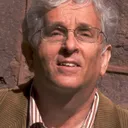Stay in the Loop
BSR publishes on a weekly schedule, with an email newsletter every Wednesday and Thursday morning. There’s no paywall, and subscribing is always free.
We now know which presidents read music, but do they read books?
Reading habits of the presidents

Last week, Broad Street Review’s Dan Rottenberg wrote about presidents and music. But what of the reading and writing habits of our current presidential candidates and former presidents?
Teddy Roosevelt was an extraordinary reader, who, according to the Ken Burns series on the Roosevelts, read a book a day, sometimes more than one. Maybe that's why he understood that being a bully is not the same as having a bully pulpit.
Ronald Reagan admired Edmund Morris's biography of Teddy Roosevelt so much that he hired Morris to write his own biography. The result was an unusual semi-fictional portrayal called Dutch that many Reagan admirers hated.
Tevi Troy's Washington Post article, “For Obama and past presidents, the books they read shape policies and perceptions,” gives lots of insight into the presidents’ reading habits. Though George W. Bush publicly declared his favorite book was The Very Hungry Caterpillar, he not only read history, he even made a point of meeting with authors he liked. Harry Truman's support for Israel is credited to Truman's reading of the multivolume history Great Men and Famous Women, edited by Charles F. Horne, especially its profile of Cyrus the Great, who allowed the Jews the right to return to Jerusalem. When discussing his support for Israel, Truman said, "I am Cyrus.” Bill Clinton loves to read mysteries, as does his wife (the family that reads together stays together) as well as some notable fiction writers such as Maya Angelou. And perhaps less (or maybe more) illuminating, Richard Nixon's farewell speech to his staff on Aug. 9, 1974, included this Nixonian line: “I am not educated, but I do read books."
Did you have a presidential library before you left office?
John Adams and Thomas Jefferson had prodigious libraries. Adams, according to biographer David McCullough, liked Greek classics. Thomas Jefferson's volumes, many acquired during his European travels, served as the basis for the Library of Congress; Jefferson even fell into debt due to his love of books.
Is it any wonder that the communications between Adams and Jefferson, initiated by Philadelphia's own Benjamin Rush, were so treasured by McCullough?
Have you written any books?
Ulysses S. Grant wrote his autobiography with the help of none other than Mark Twain; it’s considered one of the best presidential biographies ever written.
Teddy Roosevelt not only read, he wrote: A biography of Oliver Cromwell, books on hunting, gaming, and naval battles, plus nearly 150,000 letters, many to his children. No deleting private emails for this president.
John F. Kennedy used his Profiles in Courage to help give credibility and style to his youthful Presidential campaign, though some think his speechwriter, Ted Sorenson, wrote most of it.
Jimmy Carter is considered a better post-President than actual President, in part, because he has written so many thought-provoking works (plus a few controversial ones).
Hillary Clinton wrote It Takes a Village. The audio version won the 1997 Grammy Award for Best Spoken Word Album.
Do you write your own material?
Thomas Jefferson wrote the Declaration of Independence, which is considered one of the world’s great political documents.
Franklin Delano Roosevelt penned the famous phrases "A day that will live in infamy," and "The only thing we have to fear is fear itself." One of his most famous speeches was actually a non-speech. According to Lewis J. Paper’s Empire: William S. Paley and the Making of CBS, in his campaign against Thomas Dewey, Dewey signed on for the 15 minutes following FDR’s speech. FDR then spoke for 14 minutes and said nothing the last minute, causing many viewers to switch stations and never listen to Dewey.
The first president to hire a speechwriter was Warren Harding.
Donald Trump, with co-writer Tony Schwartz, authored the bestselling The Art of the Deal, but in the 21st century, while Trump delivers what seem like extemporaneous speeches, he has become the master of the 140-character Twitter domain.
Ever try poetry?
Abraham Lincoln is known best for his short but powerful "Gettysburg Address." But in the days after Gettysburg, Lincoln actually penned these famous lines:
"Gen. Lee’s invasion of the North written by himself—
In eighteen sixty three, with pomp
and mighty swell,
Me and Jeff's Confederacy, went
forth to sack Phil-del,
The Yankees they got arter us, and
giv us particular hell,
And we skedaddled back again,
And didn't sack Phil-del."
You have to love a president who can use the word "skedaddled."
A few presidents wrote love poems. John Tyler wrote many of them to impress his second wife. Finally, the aforementioned Warren Harding wrote this bawdy one to his mistress, which explains why he may have started using speechwriters:
"I love your back, I love your breasts
Darling to feel, where my face rests,
I love your skin, so soft and white,
So dear to feel and sweet to bite...
I love your poise of perfect thighs,
When they hold me in paradise...."
To read Dan Rottenberg's article about U.S. musician presidents, click here.
Sign up for our newsletter
All of the week's new articles, all in one place. Sign up for the free weekly BSR newsletters, and don't miss a conversation.

 Joseph Glantz
Joseph Glantz